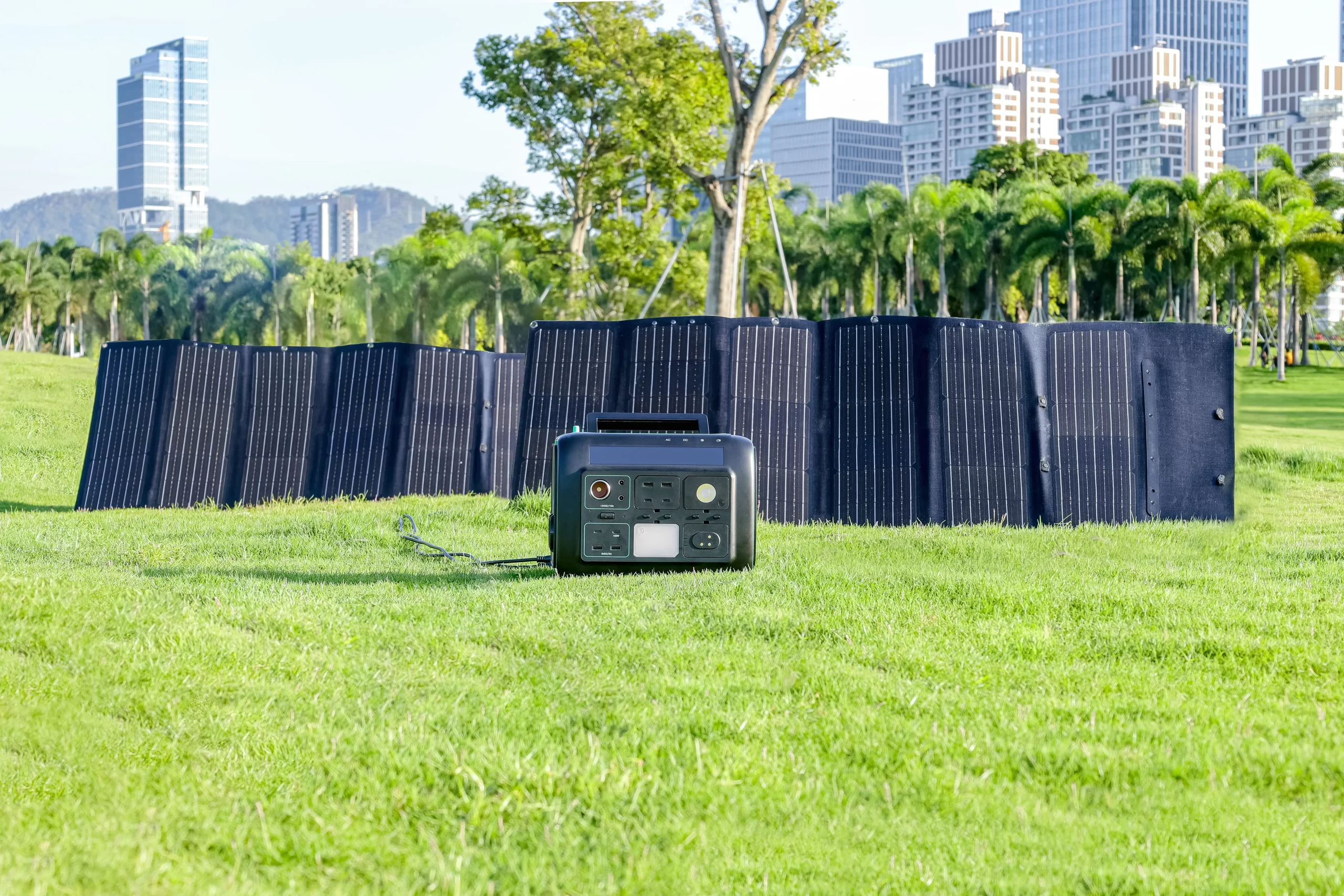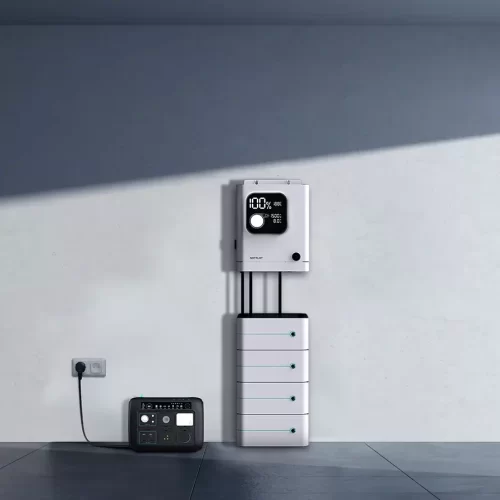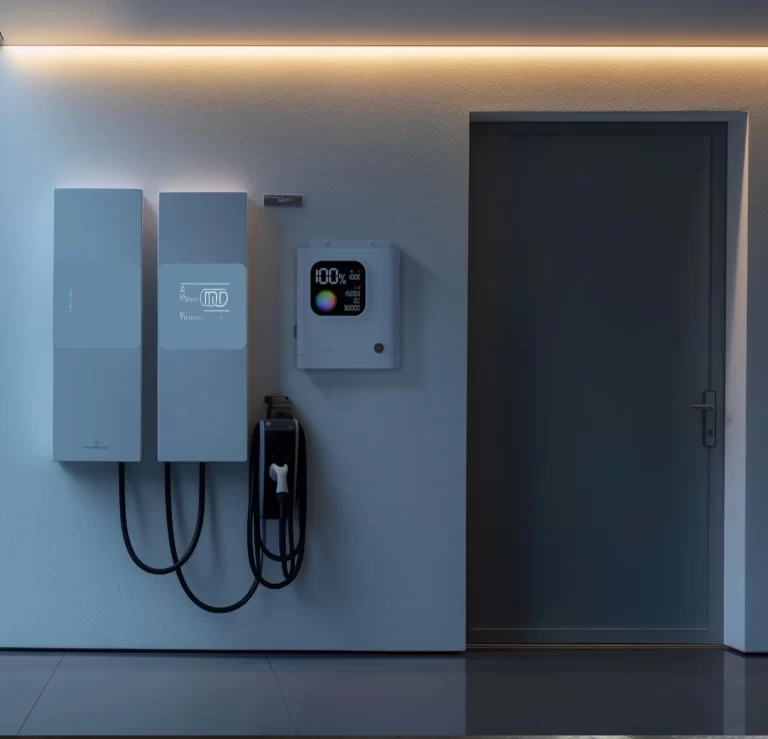地球温暖化と深刻化するエネルギー危機を背景に、グリーンエネルギーの台頭が大きな潮流となっている。政府や企業は持続可能な発展の道を積極的に模索しており、太陽エネルギー貯蔵技術は再生可能エネルギーの重要な構成要素として浮上しています。ソットロットはこの分野のパイオニアとして、高効率で信頼性の高い太陽エネルギー貯蔵ソリューションを提供し、世界中のお客様が持続可能な目標を達成できるよう支援してまいります。

太陽エネルギー貯蔵技術の概要
太陽エネルギー貯蔵技術とは?
太陽エネルギー貯蔵技術とは、太陽エネルギーを貯蔵可能なエネルギーに変換し、ピーク需要時や低照度時に利用できるようにするものである。このプロセスでは主に、常に安定した電力供給を確保するために、さまざまな種類のバッテリー・システムが使用される。太陽光発電技術が進歩し続けるにつれ、エネルギー貯蔵技術もまた、さまざまなシナリオの多様なニーズを満たすために進化している。
主な技術タイプ
- リチウム電池: 高いエネルギー密度と長寿命で知られるリチウム電池は、家庭用および商業用のエネルギー貯蔵システムに広く使用されています。その高い充放電効率は、頻繁なサイクルを必要とする用途に適しています。
- 鉛蓄電池: 鉛蓄電池は低コストだが、エネルギー密度と寿命が比較的短く、短期間のエネルギー貯蔵に適している。鉛蓄電池は、コストに敏感なプロジェクトでは依然として価値がある。
- 液体バッテリー: これらの電池は、その拡張性と安全性から、大規模なエネルギー貯蔵に理想的である。流体電池は低コストで大容量のエネルギー貯蔵を可能にし、系統調整と再生可能エネルギーの統合支援に適している。
エネルギー貯蔵システムの基本構成要素
完全な太陽エネルギー貯蔵システムには、通常以下のコンポーネントが含まれる:
- ソーラーパネル: 太陽エネルギーを電気に変換する中核部品。
- インバーター: 直流電源を家庭用または業務用の交流電源に変換する役割を担う。
- 蓄電池ユニット: 余剰電力を蓄え、後で使用できるようにする。
- 制御システム: システムのパフォーマンスを監視し、エネルギーの流れを最適化して効率的な運用を実現する。
これらのコンポーネントは、太陽エネルギーの効率的な利用とシステム全体のパフォーマンスを最大化するために連携しています。
太陽エネルギー貯蔵の利点
- エネルギー自給率の向上:
蓄電システムがあれば、晴天時に余剰電力を蓄えることができ、外部電力網への依存を減らすことができる。この機能は、電力供給が不安定な遠隔地や地域にとって特に有益であり、エネルギー自給率を大幅に向上させる。 - エネルギーコストの削減:
自給自足を実現することで、ユーザーは電気料金を大幅に下げることができる。電力料金のピーク時には、蓄電システムが独立した電力を供給し、ユーザーが高いコストを回避するのに役立つ。 - 再生可能エネルギーの開発支援:
エネルギー貯蔵技術は、再生可能エネルギーの大規模な利用を実現する鍵である。発電量と消費量のギャップを埋め、風力や太陽光といった断続的なエネルギー源の利用を強力にサポートする。 - グリッドの安定性を向上させる:
エネルギー貯蔵システムは、電力供給と需要のバランスを調整し、送電網の信頼性を高めるのに役立つ。電力需要のピーク時には、蓄電された電力を放出することで、従来の電源への依存度を下げ、送電網の回復力を高めることができる。
市場動向と展望
世界の太陽エネルギー貯蔵市場は急成長しており、今後も拡大が見込まれる。市場調査によると、特に欧州、米国、アジア太平洋地域で太陽エネルギー貯蔵ソリューションに対する需要が高まっている。政府の政策支援と継続的な技術革新により、太陽エネルギー貯蔵技術はさらなる成長の機会を迎えている。
ソットロットの太陽エネルギー貯蔵ソリューション
ソットロットの太陽エネルギー貯蔵システムは、お客様のニーズに合わせて設計された高性能と信頼性で定評があります。当社の製品は、安定した電力出力を提供するだけでなく、インテリジェントな管理システムを備えており、ユーザーがエネルギー使用量を最適化できるよう支援します。以下は当社の主力製品です:
ALPHA 800:ポータブルエネルギー貯蔵プラント
ソットロットのアルファ800は、移動可能で多目的に使用できるように設計された、スマートなポータブル太陽エネルギー貯蔵ソリューションです。主な特徴は以下の通りです:
- ワイヤレス充電: 便利なワイヤレス充電に対応し、現代のユーザーのニーズに応えます。
- ポータブルデザイン: 様々なアプリケーションに対応する軽量ソーラーパネルパック。
- インテリジェントAPPコントロール: アプリによるリモート管理で、デバイスの状態をリアルタイムで監視。
- モジュラー設計: LEDライトやブルートゥース・オーディオなど、ユーザーのニーズに応じて機能モジュールをカスタマイズできる。
安全性と効率性:
- 長寿命のLFPバッテリーを採用し、安全性と耐久性を確保。
- バッテリー管理システム(BMS)を搭載し、複数の安全性を保証。
ALPHA 3000:家庭用蓄電インバーター
より大容量の蓄電ソリューションを求める家庭には、ソットロットのアルファ3000が強力な機能を提供する:
- インテリジェント・チャージ分配: ソーラー充電とAC充電を組み合わせ、エネルギーを最大限に利用。
- リアルタイム・モニタリング: 家庭のエネルギー消費量と発電量を大型LEDディスプレイとアプリで表示。
- 強力な互換性: さまざまな接続方法とリン酸鉄リチウム電池に対応し、家庭での使用に便利。
製品の市場価値
- エネルギー自給率を高める:
ソットロットの蓄電システムを導入することで、家庭は晴天時に電気を蓄えることができ、外部送電網への依存を減らすことができる。これは、特に遠隔地や電力供給が不安定な家庭にとって有益である。 - エネルギーコストの削減:
自給自足的な電力供給は、ピーク時の高額な電気料金を回避するのに役立ち、蓄電技術によって電力使用を最適化することは、投資収益率を大幅に改善する。 - 再生可能エネルギー源の統合を支援する:
ソットロットのソリューションは、再生可能エネルギー源の効率的な統合を可能にし、グリーンエネルギーの普及を促進します。この取り組みは、社会的責任と持続可能な未来への献身の両方を反映しています。
正しい太陽エネルギー貯蔵システムの選び方
太陽エネルギー貯蔵システムを選択する際、住宅所有者はいくつかの要素を考慮する必要がある:
- 家庭のエネルギー需要: 日々の消費電力を評価し、適切なストレージ容量を選択する。
- 予算 家族の財政計画に合った解決策を決める。
- 使用シナリオ: 日常使用や緊急時のバックアップなど、さまざまなニーズを考慮する。
ソットロットは、お客様のニーズに最適なソリューションを開発し、投資収益率を最大化するための専門的なコンサルティングサービスを提供しています。
結論
グリーンエネルギーの未来は有望であり、太陽エネルギー貯蔵技術はこの進化において重要な役割を果たすだろう。技術が進歩し、市場の需要が高まるにつれ、太陽エネルギー貯蔵は再生可能エネルギー開発において重要な力となるでしょう。ソットロットは、お客様のビジネスの持続可能な未来を創造するために、お客様とパートナーシップを組む準備が整っています。当社のソリューションをお選びいただくことで、経済的な利益を得るだけでなく、環境保護にも貢献することができます。




